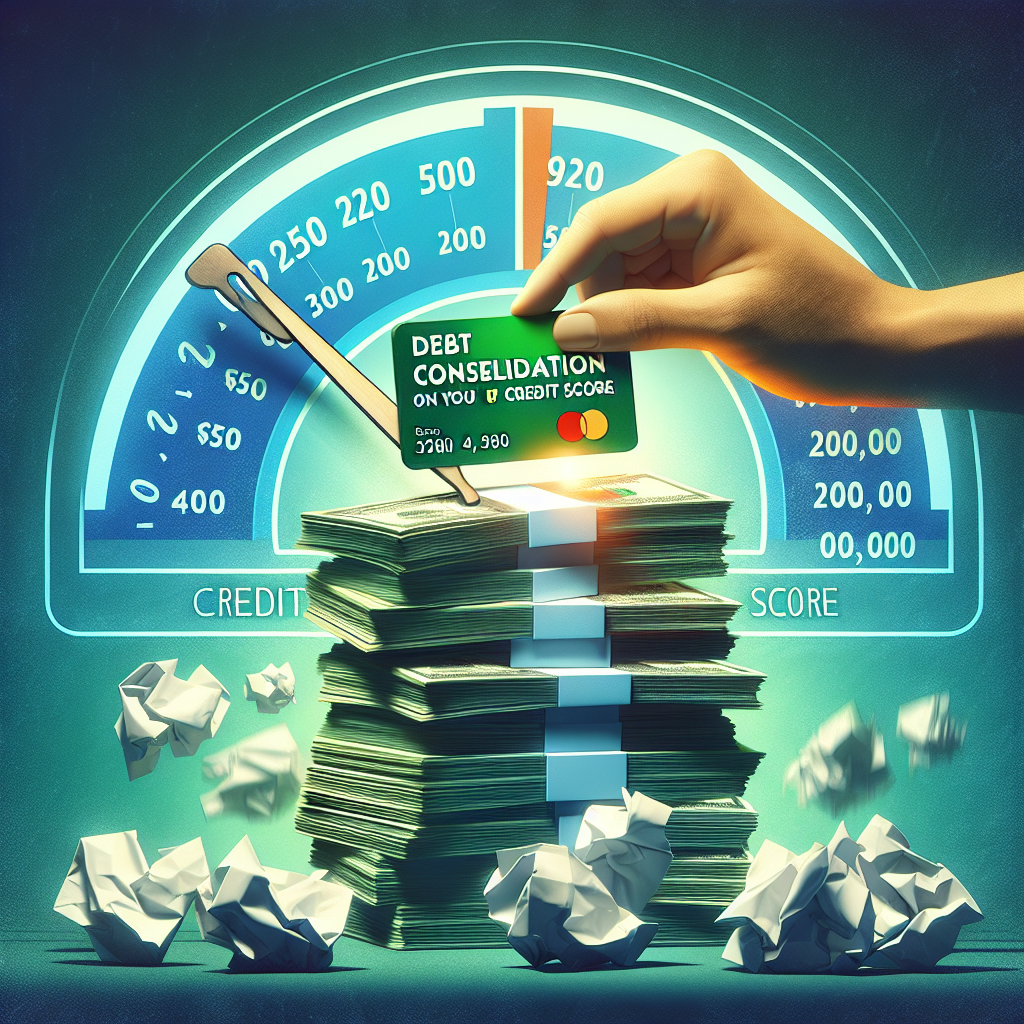Debt consolidation has emerged as a popular financial strategy for individuals looking to manage multiple debts more efficiently. It involves combining various debts into a single loan, usually at a lower interest rate. While the primary goal is to simplify payments and reduce monthly financial burden, debt consolidation can also have significant effects on your credit score. Let’s explore how debt consolidation works and its potential impact on your credit report.
What is Debt Consolidation?
Debt consolidation is the process of taking out a new loan to pay off multiple existing debts. This can include credit cards, personal loans, student loans, and more. The new loan often offers better terms, such as lower interest rates or longer repayment periods. By consolidating debts, borrowers can manage their payments more effectively, which can lead to better financial stability.
How Debt Consolidation Affects Your Credit Score
1. Initial Credit Score Impact
When you apply for a debt consolidation loan, lenders will perform a hard inquiry on your credit report. This credit check can cause a slight dip in your credit score, as hard inquiries are recorded when you apply for new credit. However, this impact is usually temporary and often recovers within a few months.
2. Credit Utilization Ratio
One of the most significant factors that influence your credit score is your credit utilization ratio, which is the amount of credit you’re using compared to your total credit limit. By consolidating credit card debt into a personal loan, you can reduce your credit utilization ratio. A lower ratio is beneficial for your credit score, as it indicates to creditors that you’re using credit responsibly.
3. Payment History Improvements
Your payment history accounts for about 35% of your credit score. Since debt consolidation can simplify your payments and lower your monthly bills, it may help you to make timely payments. As a result, consistently making payments on time post-consolidation can positively influence your credit score.
4. Length of Credit History
Debt consolidation typically involves closing existing credit accounts, which can shorten the average age of your credit accounts. This decrease in the length of your credit history can negatively affect your credit score. Maintaining older accounts even after consolidation, if possible, can help mitigate this impact.
5. Types of Credit Mix
Credit scoring models favor users with a diverse mix of credit types, including credit cards, installment loans, and mortgages. By consolidating debts, you may be reducing the variety of credit types on your report. If the consolidation results in a lack of credit diversity, your score might take a hit.
Is Debt Consolidation Right for You?
While debt consolidation has the potential to improve your overall financial situation, it’s important to consider whether it aligns with your financial goals and credit health. Here are some questions to ponder:
- What is the total amount of debt you wish to consolidate?
- What is the interest rate on the consolidated loan compared to your existing debts?
- Can you commit to making regular payments?
- Are you aware of any fees associated with the new loan?
Alternatives to Debt Consolidation
If debt consolidation isn’t the right fit for you, there are other strategies to manage debt:
-
Debt Snowball Method: Focus on paying off your smallest debts first while making minimum payments on larger debts.
-
Debt Avalanche Method: Prioritize debts with the highest interest rates to minimize the total interest paid over time.
- Credit Counseling: Seek help from a certified credit counselor who can guide you through debt management and budgeting strategies.
Conclusion: Making an Informed Decision
The impact of debt consolidation on your credit score is multidimensional, featuring both potential positives and negatives. If debt consolidation is executed wisely, it can lead to improved credit management and enhance your credit score over time. However, it’s crucial to carefully evaluate your financial situation and consider all available options before making a decision. Whether through debt consolidation or alternative methods, finding a strategy that works for you can pave the way towards better financial health. Remember, achieving a good credit score takes time and consistent effort.
By understanding the intricacies of debt consolidation and its effects on your credit score, you can take informed steps toward better financial management.

